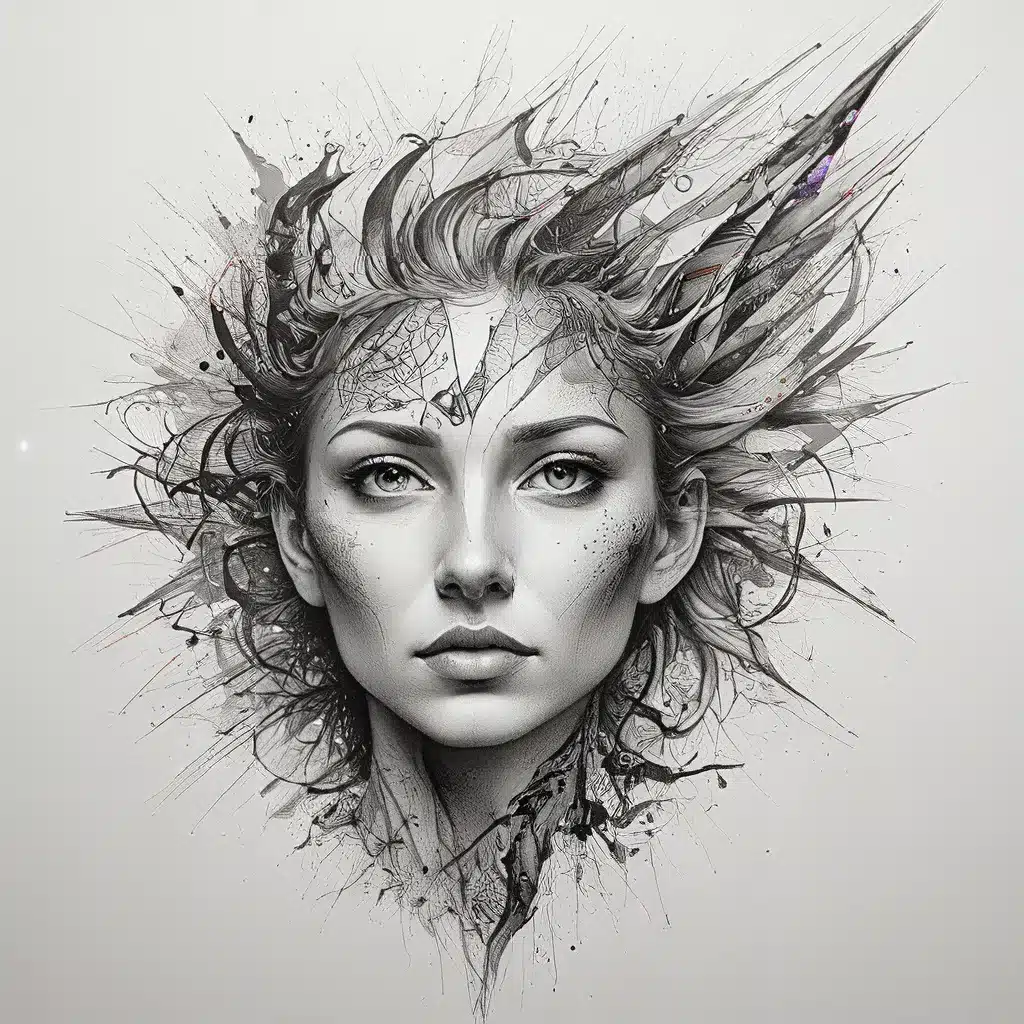
Unlock the power of sketching and discover new artistic horizons. Whether you consider yourself an artist or not, the act of putting pen to paper holds incredible potential for personal growth, mindfulness, and creative expression. In this comprehensive guide, we’ll explore a wealth of experimental drawing techniques that will inspire you to unleash your creativity and embark on a transformative artistic journey.
The Meditative Art of Sketching
Sketching or drawing is not just a means of creating visual representations; it’s a meditative practice that can profoundly impact your life. When you immerse yourself in the act of drawing, you enter a state of flow where time seems to dissolve, and you become fully present in the moment. This mindfulness and focus can have a calming and restorative effect, allowing you to find relaxation and respite in the midst of our fast-paced world.
To enhance this meditative experience, consider sketching natural scenes, such as landscapes or flowers. Connecting with the tranquility of the environment can help you achieve a deeper state of focus and inner peace. Experiment with deep breathing exercises before and during your sketching sessions to further center and ground yourself.
As Roy P Awbery notes, “Engaging in daily sketching or drawing practice can have transformative effects on your life.” By dedicating a specific time each day to this practice, even if it’s just for a few minutes, you’ll train your mind to be more attentive and observant of the world around you.
Enhancing Observational Skills
Sketching is not just about the end result; it’s a powerful tool for developing your observational skills. By focusing on the details of your subject, you become more attuned to the intricacies and nuances in your surroundings. Start by sketching everyday objects in your home, such as a coffee mug, a potted plant, or a piece of fruit. Pay close attention to their shape, texture, and lighting, and strive to capture these elements accurately in your drawings.
Experiment with different sketching techniques, such as contour drawing, cross-hatching, or gestural sketching, to further hone your observational abilities. As Awbery suggests, “Practice sketching from life whenever possible, as it allows you to observe and capture the unique characteristics of your subject.”
Additionally, consider combining your daily routines with sketching. Take regular walks in your neighborhood or nearby nature, and sketch interesting scenes or objects you encounter along the way. This not only enhances your observational skills but also encourages you to explore your surroundings in a more mindful and engaging manner.
Exploring Experimental Techniques
While traditional drawing and sketching techniques are essential foundations, experimental approaches can open up a world of creative possibilities. Embrace your inner artist and venture beyond your comfort zone to discover new ways of expression.
One experimental technique to try is mixed media drawing. Combine a variety of materials, such as pencils, pens, charcoal, and even collage elements, to create unique and visually striking compositions. Experiment with layering, textures, and unexpected color combinations to push the boundaries of your artistic practice.
Another intriguing approach is abstract drawing. Instead of focusing on realistic representation, explore the expressive potential of line, shape, and color. Embrace spontaneity and let your intuition guide you as you navigate the canvas or paper. As Awbery suggests, “Dedicate a specific time each day to sketching, even if it’s just for a few minutes – it will help you relax and explore your creativity.”
Cultivating a Unique Artistic Voice
As you delve into the world of drawing and sketching, you’ll begin to discover and develop your unique artistic voice. Embrace the journey of self-discovery and allow your sketches to be a reflection of your thoughts, feelings, and experiences.
Study the work of various artists, both traditional and contemporary, to expose yourself to different styles and approaches. Keep a collection of images, objects, and ideas that inspire you, and refer to them when seeking inspiration for your own sketches.
Experiment with different mediums, styles, and subjects to find what resonates with you and allows you to express yourself authentically. As Awbery encourages, “Don’t be afraid to experiment with different mediums such as pencil, pen, charcoal, or watercolor to keep your practice fresh and exciting.”
Remember, the journey of artistic development is a continuous process of exploration and growth. Celebrate your progress and recognize how far you’ve come as an artist. Seek constructive feedback from friends, fellow artists, or online communities to further refine and develop your skills.
Unleashing the Power of Visual Communication
Sketching and drawing are not just about self-expression; they are also powerful tools for visual communication. Through these artistic practices, you can convey ideas, emotions, and narratives in a universal language that transcends verbal barriers.
Experiment with different composition techniques to create visual impact and guide the viewer’s attention. Study the work of artists known for their storytelling abilities, such as graphic novelists or storyboard artists, to learn effective visual narrative techniques.
Practice simplifying complex concepts into visual representations, such as diagrams or infographics, to improve your ability to communicate ideas concisely. As the course on “Illustrating Nature” explored, the power of visual thinking and communication can be transformative in both personal and professional settings.
Conclusion: Embracing the Transformative Power of Drawing
In this comprehensive guide, we’ve explored the multifaceted benefits of sketching and drawing, from unlocking your creative potential to improving observation skills, promoting mindfulness, enhancing visual communication, tracking personal growth, and cultivating self-expression.
Regardless of your current skill level, the act of putting pen to paper holds the power to transform your life in profound ways. So grab a sketchbook and a pencil, and embark on a journey of self-discovery, growth, and artistic expression. Become a part of the Pencil and Paint Muse community and witness the transformative effects that daily sketching can have on your life.